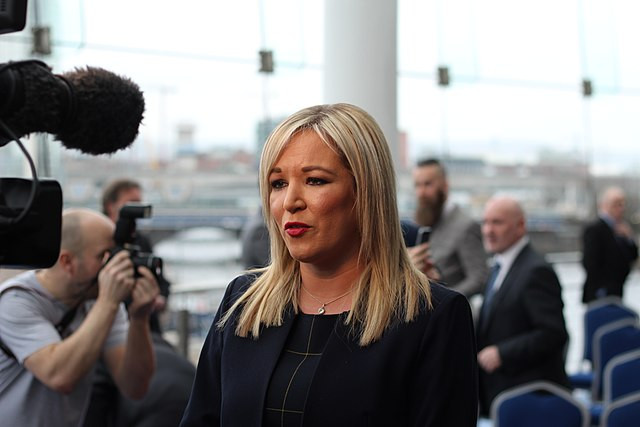Michelle O'Neill of Sinn Féin has assumed the role of First Minister, marking the first time a nationalist leader has held this position in the region's devolved legislature. This significant shift comes as part of a broader agreement to resume power-sharing after a hiatus of two years, driven by disputes over post-Brexit trading arrangements among other issues.
O'Neill's ascension is a vivid illustration of the evolving political dynamics in Northern Ireland, a region historically dominated by Unionist leadership committed to maintaining ties with the United Kingdom. "Today opens the door to the future. I am honoured to stand here as First Minister," O'Neill declared, committing to serve all communities with a focus on reconciliation and building a collective future beyond the divisions of the past.
The power-sharing agreement, a cornerstone of the 1998 Good Friday Agreement that ended decades of sectarian conflict known as "The Troubles," necessitates cooperation between nationalist and unionist factions within the Northern Ireland Assembly. The Democratic Unionist Party (DUP), representing the Unionist side, agreed to re-enter government after negotiations with the UK government addressed their concerns regarding Brexit's impact on Northern Ireland's trade with the rest of the UK.
Emma Little-Pengelly of the DUP, serving as Deputy First Minister alongside O'Neill, underscored the personal and political complexities of this new era of governance. Reflecting on her own experiences with the conflict, she acknowledged the profound differences between her Unionist background and O'Neill's nationalist stance. Yet, she emphasized their shared commitment to addressing pressing social issues, such as healthcare, that transcend political divides.
The broader context of this transition involves not only the internal dynamics of Northern Ireland but also the intricate interplay of UK-EU relations post-Brexit. The DUP's return to the power-sharing government was facilitated by the Windsor Framework agreement, which aimed to smooth post-Brexit trade between Northern Ireland and the rest of the UK, and the DUP-U.K. Safeguarding the Union agreement, which seeks to affirm Northern Ireland's economic position within the UK.
As Northern Ireland navigates this new chapter, the challenges are manifold. The region's government faces immediate crises in public services and finance, exacerbated by the prolonged absence of an active executive. Moreover, the political landscape remains fraught with potential for discord, not least because of the DUP's internal divisions and the looming UK general election, which could influence the stability of this nascent power-sharing arrangement.
Michelle O'Neill's leadership symbolizes a significant departure from the vision of Northern Ireland's founders, suggesting a future where identity and governance are more fluid, and where the prospect of a united Ireland is an increasingly open question. As Fintan O'Toole, an Irish political commentator, noted, "The whole point of creating Northern Ireland a century ago was that it would always have a Protestant majority committed to staying within the United Kingdom. Michelle O'Neill's accession to office as the leader of the largest party in the assembly dramatizes the end of that project."




